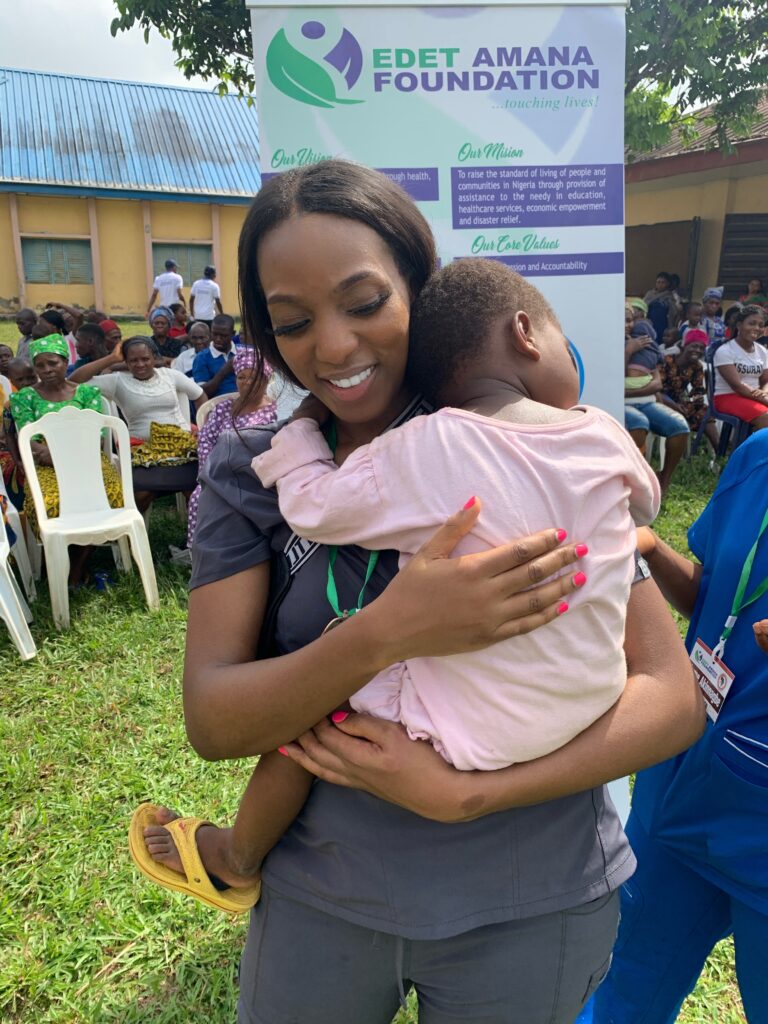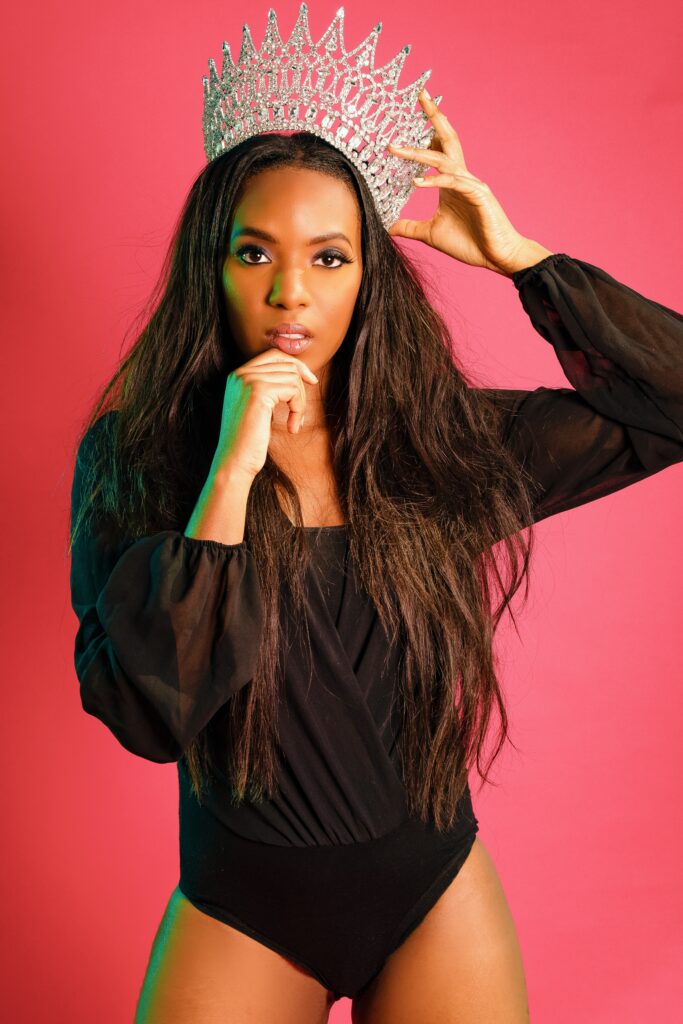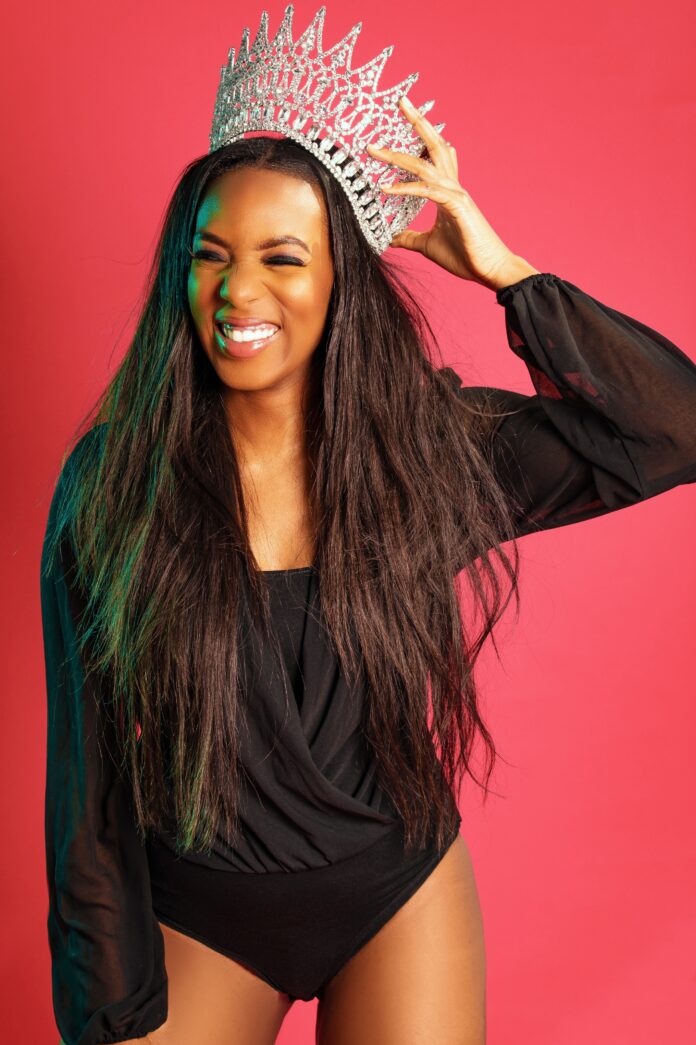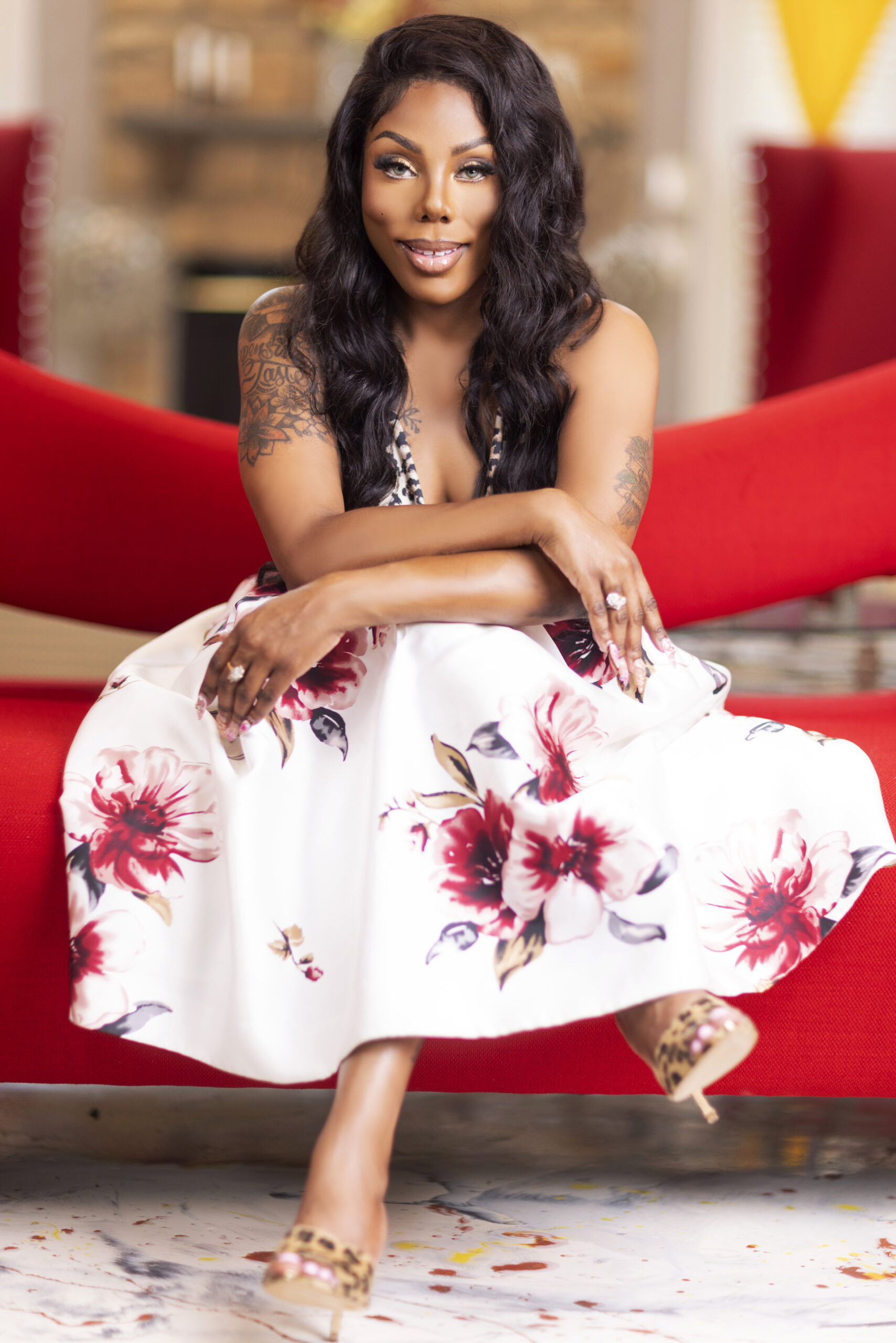( ENSPIRE Community Spotlight ) Miss United States Winner 2018-2019, Andromeda Peters, discusses Pageantry, Mental Health, and Self Care in Interview
ENSPIRE Contributor: Amitha Bhat
Andromeda, Miss United States 2018-2019, touts a Master’s Degree in Social Work and a Bachelor’s in Psychology with a minor in Theatre and is a licensed clinical therapist as well as a life coach. No stranger to the stage, she grew up around music, having a father who is an African highlife musician. She became active in theatre at age 11. Andromeda remains passionate about writing, acting, and singing today. Outside of the entertainment industry, Andromeda works as a psychotherapist with a concentration in mindfulness and trauma. Andromeda took part in the Bridging Beauty and Wellness event in May. From being a licensed therapist to Miss United States, she has a lot to say about mental health, self-care, and pageantry.
Tell me a little bit about yourself.
Well, I am known for being Miss United States from 2018 to 2019. But I’m also a licensed therapist. And I specialize in working with people with PTSD, and mindfulness. And I’m also a really, really big advocate for self-love and self-care. I do a lot of workshops and speaking engagements around those components. And I’m also a model and an actress. I’m known as a hippie amongst a lot of my friends, really into natural or essential oils, meditation, and just being out in nature and just trying to always find new ways to improve self-care.

As a licensed psychotherapist, what issues surrounding mental health and wellness do you think we should be focusing on?
I’m a young therapist, so I haven’t been in the field for that many years. But the biggest thing that I’ve noticed is that almost every concern seems to connect back to trauma. I’m not saying that everyone has PTSD, but everything does connect back to some kind of event or circumstance in our life that we deemed as dramatic or traumatic. And what I found is that with the people who I work with, although they have different diagnoses from depression, bipolar, and even some psychotic disorders, they all connect around the same field of having had this traumatic experience happen in their lives. And validation and support to work through those experiences is really, really important, and a big part of treatment. And I find that as a teen can get validation around those traumatic experiences, it helps them understand why they interact with the world the way they do and why they perceive themselves the way that they do.
How do you believe that we can improve the stigma around mental illness?
What I always talk about is the fact that there is a stigma, but so many people are in therapy, people who would never even realize in our lives, you know what I mean? A lot of feedback that I got as Miss United States was, “Wait, you’re also a therapist?” So I was able to put a face to therapists. I also open about how I saw a therapist during points in my life and how it just helped me so much to learn how to manage my self-care and be my healthiest. And if we can just be more open and have those conversations, it becomes less taboo. I also think that oftentimes when we see major crises in our country or globally, then there’s a call for concern around mental health but I always say that seeing a therapist does not always have to equate just with trauma or crisis. You can also see therapists just to help you navigate your day to day life.
What was the process to become Miss United States like?
So there’s a lot of different steps to pageants. First, you have to get a local title. I was living in Virginia at the time, representing my home city of Springfield. We went through this interview process, and it was a few weeks of talking to the Virginia State Director. And after that, I was preparing for the state competition, where you compete for a few days with an evening gown, swimwear, an interview, and an onstage question if you make the top five. And so for me, it was quite different because I had a really bad foot injury. So while I competed I remember being in my hotel room staring at my high heels. I had gone through so much physical therapy, but I hadn’t put heels on just yet. And I was trying to wear them for those few days and I then had to come out of them again and go back to rehab, so I was staring at the shoes like, “Oh my gosh, here it goes.”
You’re there for over a week and every day is some kind of area of competition. You have rehearsals around the clock. And I just remember being glued to my essential oils, like the hippie that I am. Essential Oil for energy, essential oil for nervousness, essential oils to relax at night. I also did a lot of meditating. Even my friends who I made at the pageant were like “You are meditating like every single second of the day.” And I remember the process of finals and hearing my name called the top 15. And I was pretty confident. I’m like, “Okay, I’m at least going to be in top 15,” even though I was striving to win, I just want one best interview because I’ve worked so hard on my interview. I remember being so excited to be in the top five! And then before they announced the winner, they called the winners in the categories. I had gotten the interview, the evening gown, and the best onstage question, and then I won. And I remember being like, so excited, and it was my dad’s 50th birthday and he was in the audience. I was like, “Happy Birthday Dad!”

How has becoming Miss United States changed you or impacted you?
I prepared myself to not change my personality or essence. For the crown, I just prepared myself to be able to present my best self, which means that if someone asked me like, “Tell me about you,” I know exactly what to say because I know what resonates with me. And I’m just speaking from my heart. But I learned to do it in a way where I can share the really important things I want people to know, especially about what I stand for. And then I’ve got a pretty silly personality. I don’t take things too seriously. So that’s pretty consistent. I’m always compassionate about what I do.
But I would say that things have changed for me in the sense that I was traveling to a new part of the country every week. I also wasn’t seeing my family as much so I had to learn to adjust my self-care routine a lot. I noticed that things that were working for me before I won were just not the same thing. And I’m someone who can talk self-care all day long, but I’m also really big on routine and regimen. But I found that was changing a lot. So, I had to learn to be more flexible, learn to adapt. I did a lot of maturing and growing, just traveling to different places and meeting new people.
I also noticed that now everything you do is on a platform. Not that I would post anything that I don’t believe in. But when I post something, a lot of people see it, so I always want to make sure that I’m always putting positive messages out there to encourage people. Because if you’re given a platform, I think that there’s so much more that we can do with it. I want people to go on my Instagram page and feel empowered.
What message do you have for young women who want to become Miss United States?
I would say the biggest thing that I did during my pageant experience was spending a lot of time connecting with myself. Because I had this foot injury, right, I couldn’t do a lot of walking in high heels. I couldn’t do a lot of stage work until like, down to the wire to the very last minute. So I spent months of my preparation, just doing more meditation, and increasing my self-care instead of working out rigorously. I was exercising with intention and compassion through yoga and lighter ways of connecting with my physical body. And I was really asking myself questions. It’s great to win and it’s great to want to have this accomplishment checked off my list, but what do I want to do with it? So as you can connect with your purpose, and connect with your why you’re excited to start your day, and you’re excited to start to lay the groundwork down for the advocacy that you want to do. You’re excited to make connections, volunteer, and have educated conversations with social media about what is important to you.
That’s going to show because one of the very first things that you do at any pageant is your interview and that is your moment. Not to just shine, but to speak from your heart about the things that really matter to you. But I found that I had to really connect with myself and get to know myself and understand, you know, not just why mental health is my platform, but also why I became a therapist, why I got in the field, and what my personal experiences were in life that led me to want to dedicate a huge part of my life to helping others. I think that’s honestly what showed my passion to create.
What message do you have for people who want to improve their mental health but don’t know how?
I would say, the biggest thing that you can do is to–it’s kind of the same answer. It’s connecting with yourself and what your needs are. I can’t tell you how many times we live life on autopilot, going from one responsibility to the next. I think it’s rare for us to just take a minute out of our day to say okay, what do I need from myself at this moment–so I encourage people to take an hour out of their day. About two to five minutes to ask themselves, how am I feeling right now? What do I need emotionally? What do I need physically? And you might find that you need extra support to meet those needs. And it’s always okay to reach out to a therapist to get extra support and therapy.
To me, it’s one of the best things ever. Like after I went to therapy, I even went a few years later, just because I just love talking to someone who has had my back, who doesn’t judge, who’s outside of my regular circle, and who can also give me insight on areas where I need to go. I also encourage people to really seek therapy, just to try at least once. Sometimes it takes time to find the right connection, but there’s definitely a therapist for you out there. Just be patient with that process and take every moment of your self-care as you gifting yourself. If you can view the things that you’re doing for yourself in that perspective, it will feel less laborious.
What plans do you have in store?
Of course, I’m definitely continuing my mental health work. Everything is virtual right now. So jumping into the virtual world, doing more virtual workshops. Now we’re working on shifting everything to a virtual forum and using more of a platform for speaking engagements and interviews like these and platforms like these to be able to encourage people on not just seeing a therapist, but how to manage their emotional wellness independently.
And then being in entertainment and also continuing acting pursuits and modeling. And some traveling after this is all over. And then, of course taking care of my own self-care, because even though I have my foot in all these different areas, I can’t do that if I’m not tending to my own needs too.
For more information about Andromeda Peters, visit her instagram: https://www.instagram.com/andromedapeters/?hl=en







